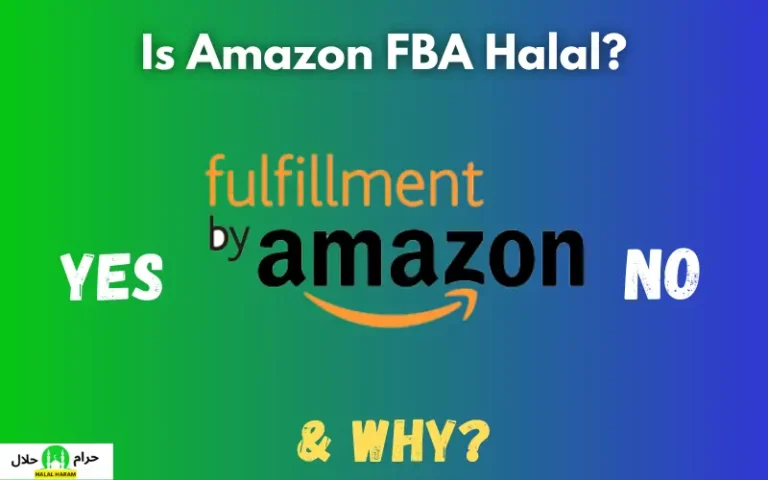Is Affiliate Marketing Halal Or Haram In Islam?
Affiliate marketing has become a popular source of income for many people in the digital age.
With minimal investment and the potential to earn significant profits, it is no wonder that more and more individuals are turning towards this form of marketing.
However, for followers of Islam, there may be some hesitation when it comes to participating in affiliate marketing due to concerns about its permissibility in the religion.
In this blog post, we will clear all the related doubts and answer is affiliate marketing halal or haram in Islam with supporting evidence from Islamic principles and teachings.
So let’s clear the doubt today.

Is Affiliate Marketing Halal?
Yes, affiliate marketing is considered halal (permissible) in Islam. However, certain conditions need to be met for it to be considered halal.
First and foremost, the product or service being promoted through affiliate marketing must be halal.
This means that the product itself must not go against any Islamic principles or teachings. For example, promoting haram drinks, games, or any other haram (forbidden) product would make the entire affiliate marketing campaign haram.
Additionally, how the product or service is being promoted must also be halal. This includes using honest and ethical methods of advertising and not deceiving potential customers.
Furthermore, affiliates need to disclose their affiliation with the product or service they are promoting. This transparency ensures that customers are aware of any potential biases or incentives in the promotion.
In Islam, honesty and transparency are highly valued and any form of deceit or concealment goes against these principles.
Otherwise, you can do affiliate marketing in different ways such as using social media, blogging, and YouTube.
Just make sure the product or service and the affiliate program such as Amazon affiliate should be halal.
If you’re into real estate, you must learn is real estate haram.
Is Commission Earned From Affiliate Marketing Halal?
One of the main concerns for affiliates is whether the commission earned through affiliate marketing is halal. The answer to this question is yes, as long as the product or service being promoted is halal.
The commission earned in affiliate marketing is considered a form of lawful income, similar to traditional forms of employment. As long as the product or service itself is not haram, the income earned from promoting it through affiliate marketing is also halal.
In earlier times, people would earn a living through various forms of trade and this can be seen as a modern-day form of trading.
Understand Why Affiliate Marketing Is Halal?
If you want to understand why affiliate marketing is halal, it is important to first understand the concept of affiliate marketing in Islam.
In simple terms, affiliate marketing is a form of partnership between the product or service provider and the affiliate marketer.
The marketer promotes the product or service to potential customers and earns a commission for every successful sale made through the referral link provided by the owner.
This concept of partnership and earning through referrals is not new in Islam. In fact, it is encouraged as a means of earning a lawful income.
In the Quran, it is stated “And cooperate in righteousness and piety, but do not cooperate in sin and aggression” (5:2).
This verse highlights the importance of engaging in lawful means of earning and avoiding any form of unethical or unlawful practices.
Affiliate marketing, when done with honesty, transparency, and promoting halal products or services, falls under the category of lawful earning and thus, is considered halal in Islam.
Also see is cashback halal.
Type Of Affiliate Marketing
Now that we have established that affiliate marketing can be halal, it is important to also understand the types of affiliate marketing.
This is crucial for ensuring that affiliate marketing is done in a halal manner.
There are two main types of affiliate marketing – Cost Per Sale (CPS) and Cost Per Action (CPA).
In CPS, affiliates earn a commission when a customer purchases through their referral link. This type of affiliate marketing is considered more transparent as the customer knows that they will be making a purchase and the affiliate will earn a commission.
On the other hand, CPA involves affiliates earning a commission for every action taken by the customer, such as signing up for a newsletter or filling out a form. This type of affiliate marketing may not always be clear to customers and can potentially lead to unethical practices if not done honestly.
Affiliates need to choose the type of marketing that aligns with their values and principles to ensure a halal practice. And make sure the product or service buyer knows the affiliate marketer will get a commission on their purchase.
Things To Avoid In Affiliate Marketing
While affiliate marketing can be a halal means of earning, certain things should be avoided in order to ensure it remains within the boundaries of Islamic principles.
Here are some tips to keep in mind:
- Avoid promoting haram products or services, such as haram drinks, games, tools, etc.
- Be transparent about your affiliation with the product or service being promoted.
- Use honest and ethical methods of advertising, avoiding any form of deceit or concealment.
- Be cautious of the type of affiliate marketing chosen, making sure it aligns with Islamic principles.
- Always prioritize honesty and transparency in all forms of transactions and partnerships.
By following these guidelines, affiliates can ensure that their practice remains halal and in line with the teachings of Islam.
If you play football, you can learn is football haram.
FAQs
Q. Is Amazon Affiliate marketing halal?
A. Yes, Amazon affiliate marketing can be halal if the products being promoted are halal and the method of promotion is done with honesty and transparency.
Q. Is affiliate marketing haram In Islam?
A. No, affiliate marketing is not haram in Islam as long as it is done with lawful and ethical means.
Q. Is affiliate marketing halal Hanafi?
A. Yes, according to the Hanafi school of thought in Islam, affiliate marketing is considered halal as long as it doesn’t involve promoting haram products or services and is done with honesty and transparency.
Q. Is commission halal or haram in Islam?
A. Commission earned through lawful and ethical means, such as in affiliate marketing, is considered halal in Islam.
Q. Is marketing halal in Islam?
A. Yes, marketing is halal in Islam as long as it is done with honesty and transparency, promoting lawful products or services.
Conclusion
In conclusion, affiliate marketing can be a halal means of earning in Islam as long as it is done with honesty, transparency, and promoting lawful products or services.
Affiliates need to understand the concept and guidelines of affiliate marketing to maintain a halal practice.
By following Islamic principles and avoiding any unethical practices, affiliates can earn a lawful income through this modern-day form of trading.
I hope your doubts on is affiliate marketing halal or haram in Islam are cleared. May Allah guide us to always engage in halal means of earning and bless our efforts. Ameen.






